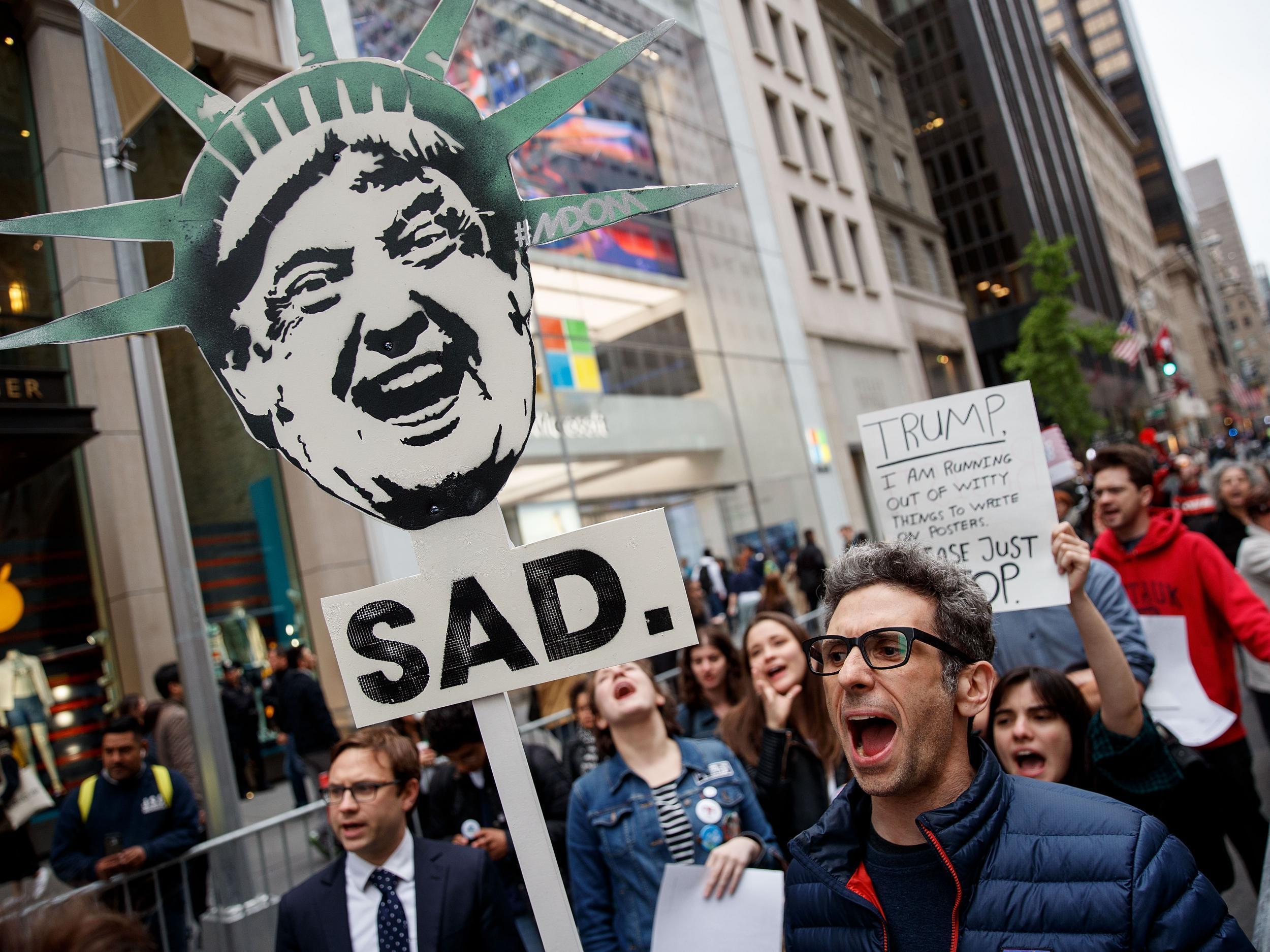More than 20 US states have cracked down on protests since Donald Trump's election
Proposals 'severely infringe upon freedom of expression' warns United Nations

Your support helps us to tell the story
From reproductive rights to climate change to Big Tech, The Independent is on the ground when the story is developing. Whether it's investigating the financials of Elon Musk's pro-Trump PAC or producing our latest documentary, 'The A Word', which shines a light on the American women fighting for reproductive rights, we know how important it is to parse out the facts from the messaging.
At such a critical moment in US history, we need reporters on the ground. Your donation allows us to keep sending journalists to speak to both sides of the story.
The Independent is trusted by Americans across the entire political spectrum. And unlike many other quality news outlets, we choose not to lock Americans out of our reporting and analysis with paywalls. We believe quality journalism should be available to everyone, paid for by those who can afford it.
Your support makes all the difference.More than 20 US states have proposed bills placing new restrictions on protests in the months since Donald Trump became President.
The potential laws included legislation creating stricter penalties for protesters who are arrested, and in some states, removing liability from drivers who accidentally injure protesters on the roads.
The United Nations (UN) said some of the proposals “would severely infringe upon the exercise of the rights to freedom of expression and freedom of peaceful assembly". The legislation was incompatible with international human rights law, it warned.
It also said the legislation was part of a “worrying pattern”, adding that the proposals could have a “domino effect” on other states and lead to a general crackdown on demonstrations across America.
Under legislation in Missouri, wearing a mask or disguise while protesting would be a crime. In Arkansas, Georgia, Iowa, Tennessee and Florida there are proposed bills to toughen penalties for blocking roads or trespassing.
“Some of these bills are so egregious that you don't need a law degree to conclude they're unconstitutional,” Lee Rowland, an attorney for the American Civil Liberties Union, told CNN.
The election of Mr Trump in January triggered a spate of mass protests. Hundreds of thousands of Americans joined the women's marches and a number of anti-Trump marches have taken place since.
Some of the laws the UN flagged as cause for concern had already been signed into law in North Dakota, in an apparent attempt to increase powers against protesters against the North Dakota Access pipeline.
Join our commenting forum
Join thought-provoking conversations, follow other Independent readers and see their replies
Comments